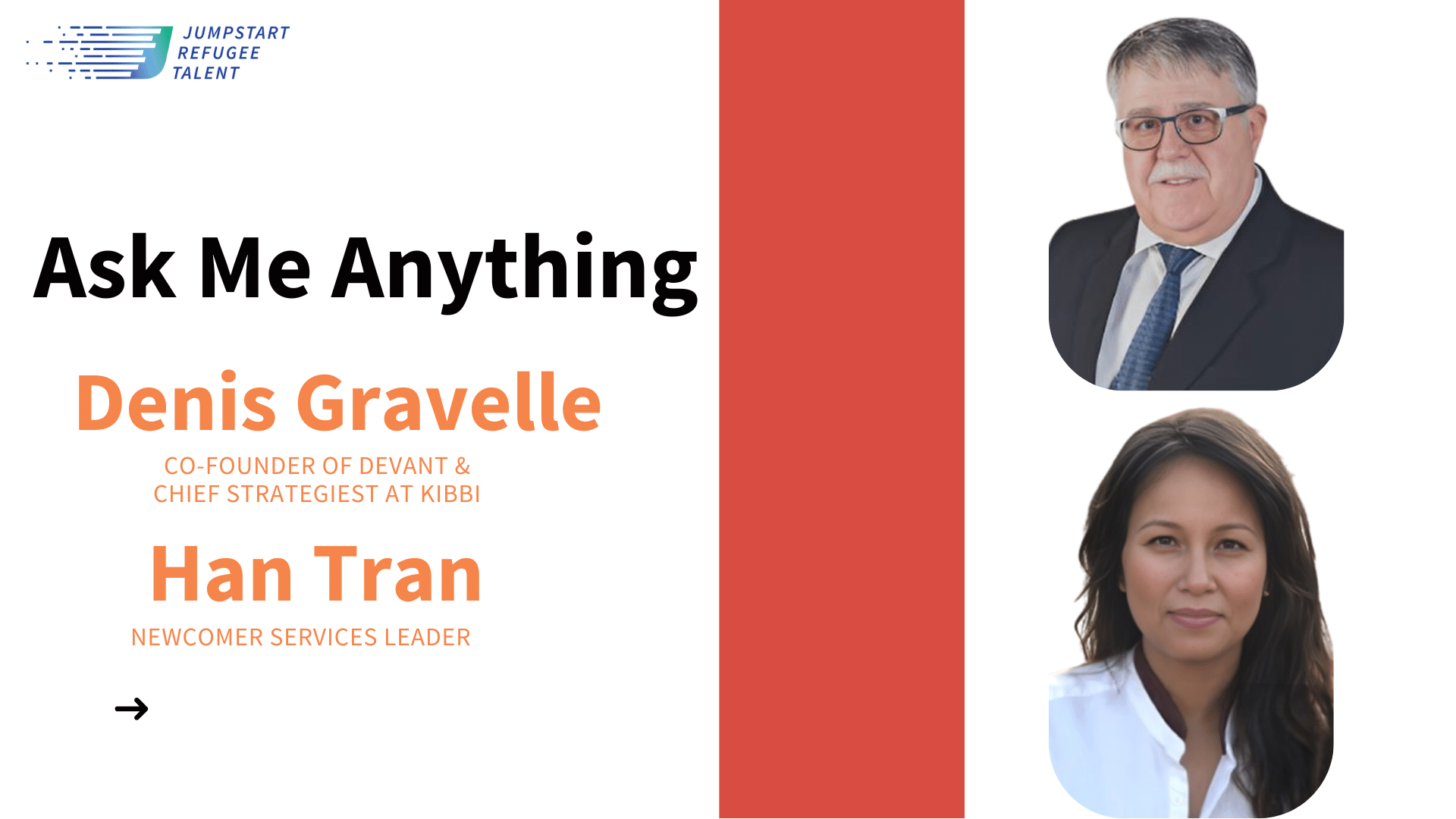In today’s competitive job market, companies are increasingly recognizing the value of diverse talent to drive innovation, foster inclusive cultures, and meet evolving business needs. One often overlooked but highly valuable talent pool is that of refugees. Refugee professionals bring a wealth of skills, unique perspectives, and resilience to the workforce, making them an asset to any organization.
In this first of a five-part series interview with Darrell Pinto, Director of Employment with Jumpstart, we delve into the benefits of hiring refugee talent, exploring how these individuals not only fill skill gaps but also enhance workplace diversity and contribute to economic growth. Darrell shares insights on why integrating refugee talent into the workforce is not just a humanitarian effort but a strategic business decision that can lead to a more dynamic and successful organization.
******
Jumpstart: What unique skills and perspectives do refugee employees often bring to the workplace that can benefit Canadian employers?
Darrell Pinto: Refugees bring resilience and a deep sense of loyalty, which are invaluable in the workplace. This often results in higher retention rates, especially in industries with high turnover. In regions outside metropolitan areas, where retaining workers can be particularly challenging, hiring refugees can be a game-changer. Beyond this, our work through the Economic Mobility Pathway Pilot (EMPP) shows that refugee talent isn’t limited to domestic pools; there are skilled professionals globally who are eager to contribute.
JS: How does hiring refugee talent contribute to workplace diversity and inclusion, and what positive impacts have you observed in companies that have done so?
DP: Refugee employees significantly enhance diversity, covering a wide spectrum that includes gender, race, and other marginalized groups. At Jumpstart, for example, we see that nearly half of our 2,600 refugee clients are women, and most are BIPOC. In addition to these traditional dimensions of diversity, the lived experiences of individuals who have had to creatively navigate their journey of forcible displacement and resettlement has tested their resilience, and adaptability beyond what most average Canadians have encountered. Many stories of refugees focus on the negative and sad aspects of having to flee their homes. On the positive side, this latter ordeal has acted as a crucible which has fortified their unique problem-solving abilities and creativity. However, it’s crucial for employers to provide platforms, such as employee resource groups, where refugees can voice their ideas. Refugees may be quieter in new environments due to their experiences, but with the right support, and once they feel safe, they can contribute valuable insights that drive innovation.
JS: Can you explain how hiring refugee talent can help Canadian companies address labor shortages in key industries?
DP: Refugee talent is an undertapped resource that can help fill labor shortages, especially in sectors struggling to find qualified candidates. I often encourage companies to explore this talent pool—many are pleasantly surprised by the skill level and dedication they find. There’s a misconception that refugees are only suited for entry-level roles, but this is far from the truth. Many are highly skilled professionals who are eager to contribute at all levels.
JS: How does the resilience and adaptability of refugee employees translate into valuable workplace skills?
DP: Resilience and adaptability are essential for problem-solving, which is at the heart of every successful business. Refugee employees, having navigated significant challenges, bring these qualities in abundance. Additionally, in larger metropolitan areas, having a workforce that reflects the diversity of the community is not just a social good—it’s a competitive advantage. Companies that embrace this diversity are better equipped to meet the needs of their clients and customers.
JS: What long-term benefits have Canadian companies reported after hiring and investing in refugee talent?
DP: Companies that invest in refugee talent report several long-term benefits, as highlighted in a recent Harvard Business Review article. These include increased retention rates, enhanced workplace diversity, and more creative problem-solving. Furthermore, these companies often build stronger community relations, as investing in refugees resonates positively with local stakeholders. Long-term loyalty and dedication also contribute to a more stable and committed workforce. For businesses operating globally or serving diverse markets, the cultural and linguistic skills that refugees bring are invaluable.





